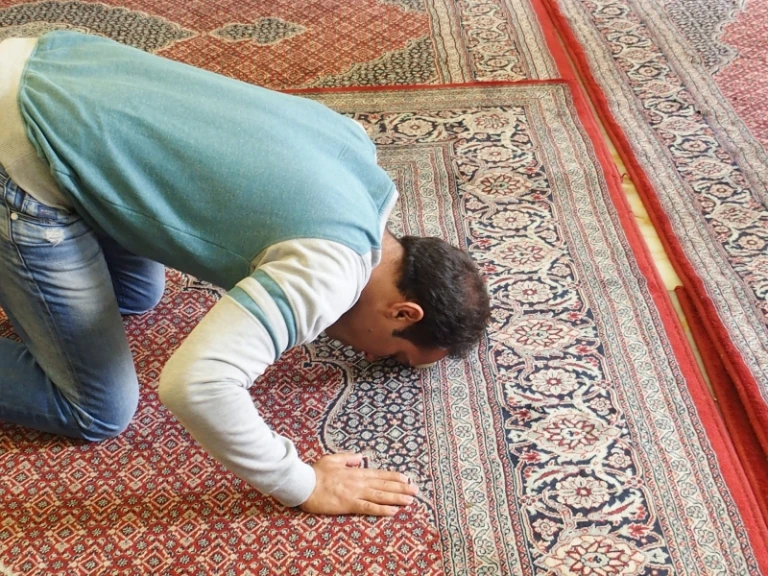Besides mountains, Sabah has so much to offer its visitors from vast clear blue waters to rare native wildlife. You will never be bored when you visit this hidden gem of Malaysia.
Ramadan and Islam: Why Do Muslims Fast?

“Oh, you who believe! Fasting is prescribed to you as it was prescribed to those before you, that you may learn piety and righteousness” (Al-Quran 2:183)
What is fasting?
During the blessed month of Ramadan, Muslims will typically engage in fasting or sawm for the entire month. Each day from dawn to dusk, Muslims abstain from eating and drinking. Muslims wake up for a pre-dawn meal called sahur or suhoor before Subuh, the first prayer of the day. They break their fast (iftar) when they hear the call to prayer in the evening.

Fasting is more than just abstaining from food and drinks. There are actually three levels of fasting that includes avoiding eating and drinking, abstaining from sinful behaviour such as smoking and restraining bad behaviour whether it’s speaking ill of others or swearing. Fasting is a way one controls their desires and focus on their devotion to God.
Who is expected to fast?
Fasting in Ramadan is prescribed to Muslims who are over the age of puberty, sane and healthy. People who are regarded as mentally disabled or have serious health issues are excused from fasting.

Fasting is excused for those who are travelling, menstruating women, women experiencing post-natal discharges, pregnant ladies and Muslims with a temporary illness. These groups of people could still fast if they wish to but it’s usually highly discouraged due to any potential health risks. However, these people would have to qada’ or make restitution by fasting the equal number of days missed before the next Ramadan.
Why do Muslims fast during Ramadan?
Fasting is one of the pillars of Islam. The pillars of Islam refer to the set of guidelines stated in the holy book that Muslims are expected to follow. Other pillars of Islam include professing one’s faith, praying five times daily, paying zakat or donating to charity and performing Hajj.

Furthermore, fasting encourages Muslims to reflect on their behaviour and practise self-discipline. From taming physical appetite to subduing greed and lust, fasting will elevate the believer’s consciousness to a spiritual level beyond just physical and moral.
Also, one of the lessons Muslim can learn through fasting is to empathize with those who are underprivileged. Through fasting, Muslims will be made aware of the predicament faced by the poor and hungry. Hence, it elicits social consciousness to a certain extent.
Also read: 6 Health Tips for Muslims Fasting During Ramadan
What are the benefits of fasting?
1. Detoxify your body

Fasting stimulates a process called autophagy where cells self-cleanse and remove damaged and dangerous particles. Thus, it allows the gut to cleanse itself as our body is able to concentrate on removing toxins instead of food consumption. Since one will not be eating, the body utilizes fat reserves in order to produce energy. Hence, it will burn any toxins found in fat deposits. When done right, fasting helps Muslims lose fat and gain lean muscle mass.
2. Improve metabolism

As you fast, your body’s metabolism will be increasingly more efficient. This means that the absorption of nutrients will greatly improve. Due to an increase in the hormone adiponectin which is produced when fasting and eating late at night, it will allow your muscles to absorb more nutrients. Therefore, your body will be better equipped to function since it has sufficient nutrients.
3. Prevent health problems

According to health experts, restricting food intake during the day can help prevent an array of health issues. Fasting aids in preventing diseases related to high cholesterol, heart issues and obesity. Cardiologists have found that Muslims who fast have a positive impact on their lipids profile resulted from lower cholesterol levels.
4. Develop self-control
 Fasting helps develop willpower and self-control over our basic desires. Muslims will have the willpower to overcome temptation and passions such as lust and anger. Since one is discouraged from arguing or responding to negativity, fasting actually aids in anger management and managing your temper especially when provoked.
Fasting helps develop willpower and self-control over our basic desires. Muslims will have the willpower to overcome temptation and passions such as lust and anger. Since one is discouraged from arguing or responding to negativity, fasting actually aids in anger management and managing your temper especially when provoked.
A believer will realize to react better in highly emotional situations. Ultimately, it will significantly impact spirituality and moral improvement.
5. Build a more compassionate society

Fasting evokes empathy and compassion for the less fortunate as Muslims experience firsthand the difficulties they face. It is an important reminder that many go hungry without having much choice. Hence, we should practise empathy and help those in need whenever possible. Moreover, Muslims will be more grateful and contented with the blessings that have been bestowed upon them.
Published at
About Author
Inshirah Majid
Subscribe our Newsletter
Get our weekly tips and travel news!
Recommended Articles
10 Hidden Gems of Sabah, Malaysia 10 Muslim Footballers That Will Inspire You And Your Goals HalalZilla consults the great archives of football to handpick our top Muslim players who’ve ever laced a pair of boots in the big leagues – especially those you didn’t know were Muslim!
10 Muslim-Friendly Islands in Indonesia Many travellers have either been to Bali and Lombok, or are planning a trip there – they are the most popular tourist destinations for Muslim and non-Muslim alike. . While these islands are tourist-friendly and especially Muslim-friendly, there are many other islands in Indonesia that are just as beautiful and have lots to offer. Check […]
Top 10 Ramadan Special Menus to Try in India Discover 10 exceptional Ramadan menus across India that will make your meal experience amazing even while travelling!
Where to Break Your Fast in Singapore: 11 Must-Try Ramadan Dining Spots Special deals for Ramadan!
Latest Articles
10 Most Stunning Camping Spots in Yogyakarta, From Mountain Peaks to Riversides for Muslim Adventurers Level up your adventure!
10 Nature-Themed Cafes in Batu, Malang for A Halal-Friendly and Soul-Soothing Escape Escape to nature!
10 Best Hotels in PIK Jakarta for a Fun Family Staycation: Strategic & Stylish perfect destination for a quick weekend escape or a fun-filled family staycation
No Flight Needed! 9 Jakarta Hotels That Give You Major Bali Vibes Jakartahides some secret "oases" that can make you feel like Bali
17 Stunning Filming Locations of "Can This Love Be Translated?": From Japan to Canada not just the romance that’s stealing the spotlight—it's the breathtaking scenery

